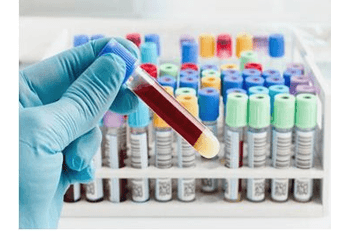A RETROSPECTIVE STUDY OF THE TREATMENT RESULTS OF 40 DIVERSE PATIENTS OF ANEMIA
Keywords:
Anemia drug induced immune hemolytic anemia (DIIHA), iron, folate and vitamin B12megaloblastic anemia, prevention and treatmentAbstract
Background and objective: Anemia is clinical common event. There are many types of anemias, which included stem cell problems, vitamin deficiency, chronic diseases and drug antibody -induced immune hemolytic anemia. In this study, a retrospective purpose was investigated to assess the clinical efficacy of treatment and their outcome.
Methods: Total 40 patients with different types of anemias were presented in the second affiliated hospital of central south University, China and my tumor institute during 1989-2019. The therapeutically design among those patients with anemias was setted to the various regimen according to diseases diagnoses.
Results and conclusion: Total 23 patients achieved cure or complete remission (CR), with the exception of refractory cancers and uremic anemia. Iron supplement was provided in 5 iron deficiency anemia. One megaloblastic anemia produced an excellent response following the supplement of vitamin B12 and folic acid. 2 aplastic anemia obtained complete remission with the integrated protocol of methyl testosterone, adenine, leucogen, and levamisol. Steroid hormone (e.g. prednisone) mixed traditional medicine were occasionally promising benefit in a nephrotic syndrome and renal insufficiency. Among 2 cases with drug-induced immune hemolytic anemia (DIIHA), laboratory studies one patient's serum contained paracetamol-dependent antibody that in the presence of paracetamol, agglutinated in-vitro with "O" red cells with or without complement. Drug antibody titer was 1:4 positive. Immune hemolysis was mediated by both the immune complex and uptake of drugs, whereas hemolysis induced by another native herb was caused by absorption of the drug only. In addition, with respect to anemia induced by malignancies, the molecular genomic regulation of retinoic acid in APL has been elucidated (see illustration in full text). Therefore, promoting effective prevention and / or early preventive treatment of anemia is our concern.

Peer Review History:
Received 6 February 2021; Revised 8 March; Accepted 11 April; Available online 15 May 2021
Academic Editor: Dr. DANIYAN Oluwatoyin Michael , Obafemi Awolowo University, ILE-IFE, Nigeria, toyinpharm@gmail.com
, Obafemi Awolowo University, ILE-IFE, Nigeria, toyinpharm@gmail.com
Reviewer(s) detail:
Dr. Bilge Ahsen KARA , Ankara Gazi Mustafa Kemal Hospital, Turkey, ahsndkyc@gmail.com
, Ankara Gazi Mustafa Kemal Hospital, Turkey, ahsndkyc@gmail.com
Prof. Dr. Hassan A.H. Al-Shamahy , Sana'a University, Yemen, shmahe@yemen.net.ye
, Sana'a University, Yemen, shmahe@yemen.net.ye
Downloads

Published
How to Cite
Issue
Section

This work is licensed under a Creative Commons Attribution-NonCommercial 4.0 International License.









 .
.